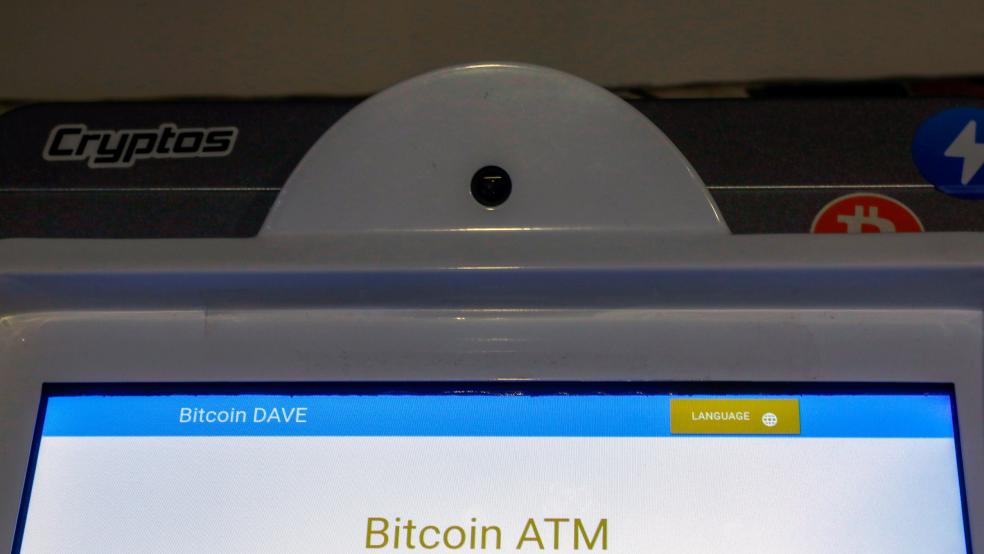WASHINGTON (Reuters) - The main U.S. derivatives regulator said on Friday it would allow CME Group Inc and CBOE Global Markets Inc to list bitcoin futures contracts, opening the door to added regulation and more mainstream adoption of the cryptocurrency.
The announcement by the Commodity Futures Trading Commission paves the way for CME and CBOE to become the first traditional U.S. regulated exchanges where bitcoin-related financial contracts can trade.CME, the world's largest derivatives exchange, said it would list its bitcoin futures contract on Dec. 18. CBOE said it would set a launch date in the near future. Both contracts will be priced against and settled in the cash bitcoin market.The bitcoin underlying the futures contracts will still be traded on lightly regulated over-the-counter markets. Still, putting futures contracts on highly scrutinized U.S. exchanges could convince other regulators to allow more cryptocurrency-derived products such as exchange-traded funds.So far, the U.S. Securities and Exchange Commission has not allowed bitcoin-based ETFs on the CBOE or elsewhere, partly because of concerns around the unregulated aspect of bitcoin. CBOE will return to the SEC with its ETF application as liquidity builds in futures contracts and the exchanges demonstrate how their oversight of the underlying market works, the exchange operator's Chief Executive Officer Ed Tilly said in an interview."I would anticipate then you’ll see a great many applications for notes and funds that are tracking or holding crypto" currencies, he said.CFTC Chairman Christopher Giancarlo warned investors that the nascent underlying bitcoin cash markets remained largely unregulated and mostly beyond the commission's purview.The futures exchanges must coordinate to help spot market manipulation, flash rallies, trading outages and other problems on the unregulated exchanges where bitcoin is traded, he said in a statement."Nevertheless," Giancarlo added, "investors should be aware of the potentially high level of volatility and risk in trading these contracts.”CME and CBOE have agreed to enter into information-sharing agreements and send the CFTC data on the settlement process so the regulator can conduct its own surveillance.Bitcoin's price has soared tenfold this year, but many market participants warned of a bubble this week as it topped $11,000 for the first time.To guard against volatility, CME and CBOE will enact stricter-than-usual risk-management safeguards, including initial margin requirements of 35 percent to 40 percent. The virtual currency, which before the news had been trading at around $10,150 on the Luxembourg-based Bitstamp exchange, jumped to as high as $10,513 in the minutes that followed, up more than 5 percent on the day. It was last up 6.6 percent at $10,600. "This is a tacit approval for the industry as a whole; digital assets are now mainstream," said Charles Hayter, CEO of cryptocurrency platform CryptoCompare. Under CFTC regulations, designated contract exchanges such as CME and CBOE's CFE do not need the commission's prior approval to list products for trading. They need only file a written self-certification with the regulator. Under self-certification, a quirk of the futures market, an exchange confirms that the product complies with the Commodity Exchange Act and CFTC regulations, including that the contract is not susceptible to manipulation.CME has been vying with CBOE to introduce the first bitcoin-related financial product. Nasdaq Inc also plans to list a futures contract based on bitcoin in 2018, Reuters reported this week. (Reporting by Michelle Price and John McCrank; Additional reporting by Jemima Kelly and Gertrude Chavez-Dreyfuss; Editing by Leslie Adler, Lisa Von Ahn and David Gregorio)U.S. regulator to allow CME, CBOE to list bitcoin futures

BRENDAN MCDERMID



